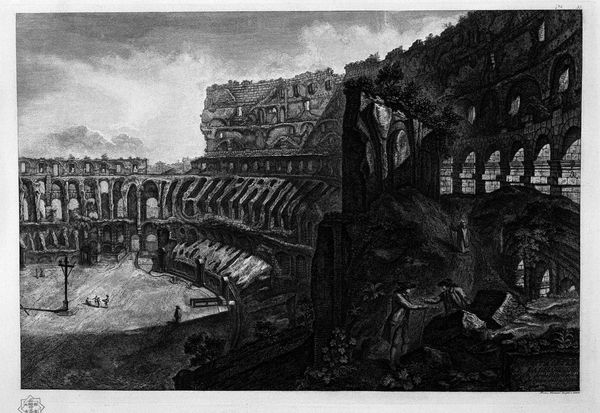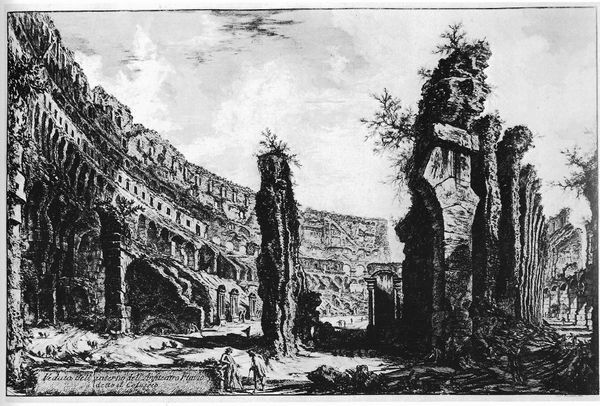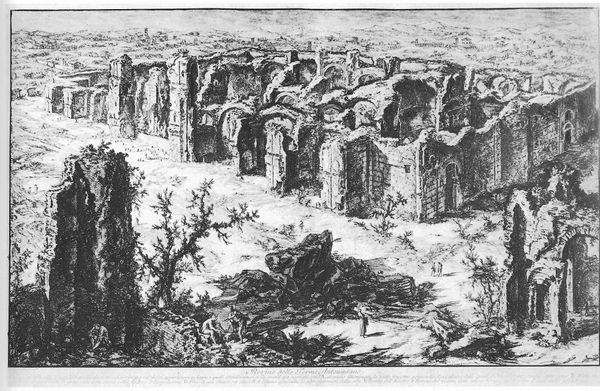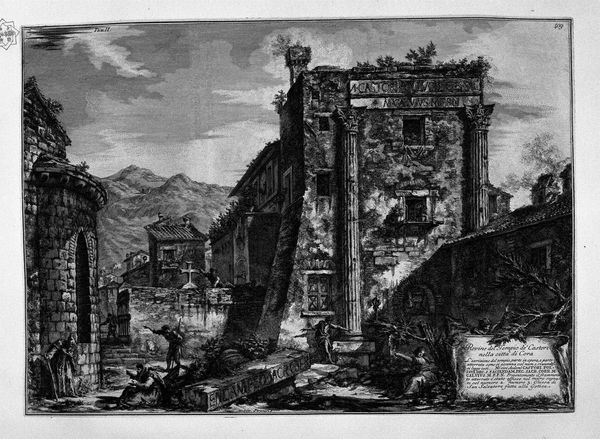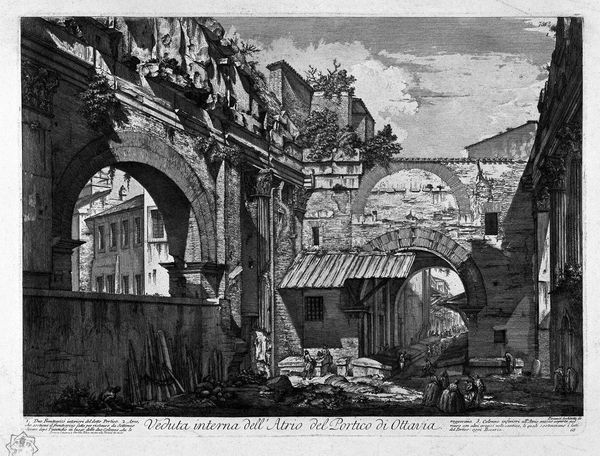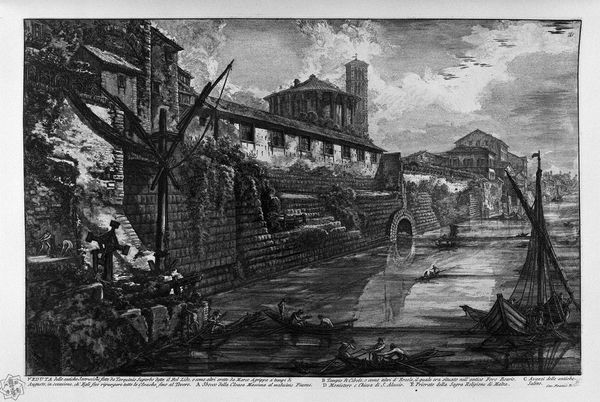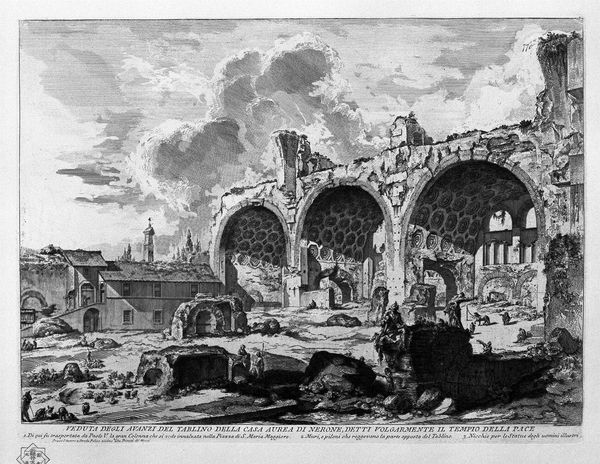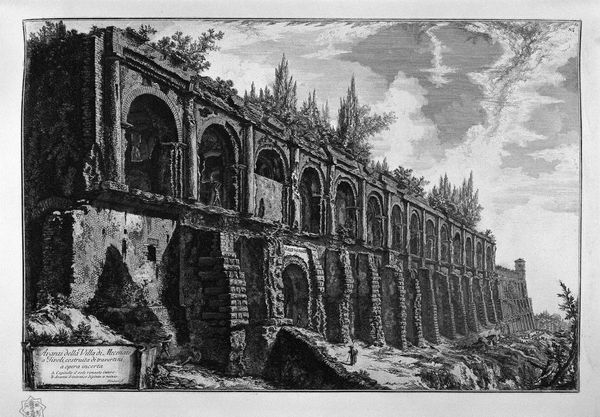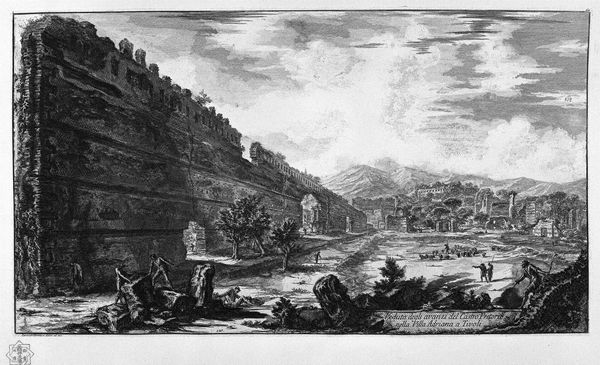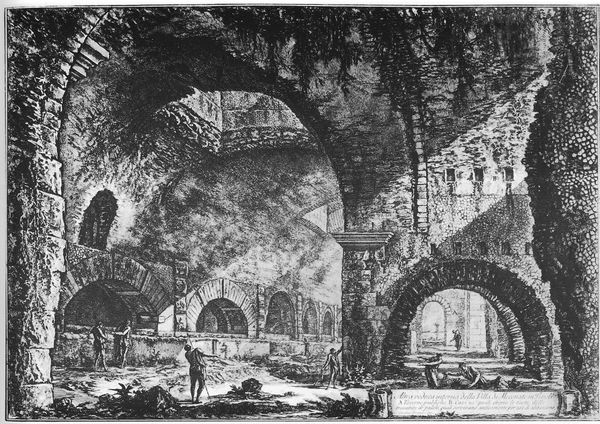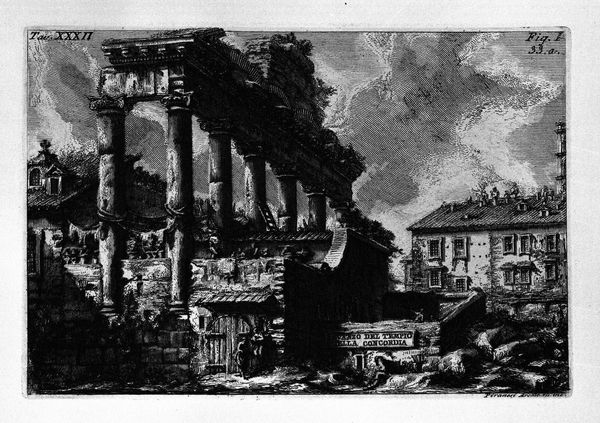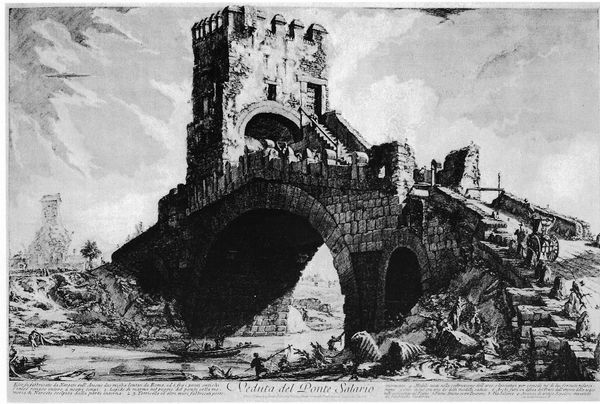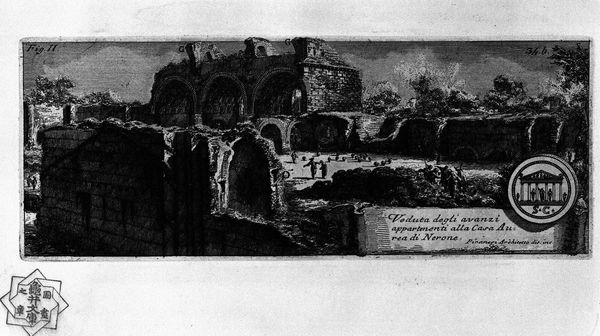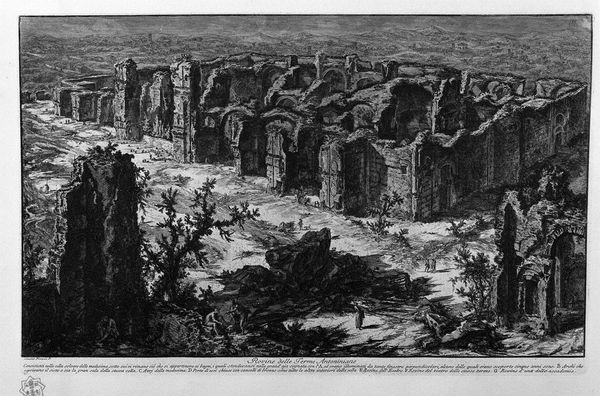
photography
#
quirky sketch
#
pencil sketch
#
incomplete sketchy
#
junji ito style
#
photography
#
sketchwork
#
column
#
pen-ink sketch
#
surrealism
#
surrealist
#
pencil art
#
fantasy sketch
Copyright: Public domain
Editor: Here we have "Vedute di Roma" by Giovanni Battista Piranesi. It’s an incredible etching and, frankly, feels quite haunting. How do you interpret this work, particularly given its subject matter of Roman ruins? Curator: That feeling of being haunted is precisely what resonates with me. Piranesi’s Rome isn't a simple record of architectural grandeur; it’s a statement on power, decay, and the ephemerality of empires. Think about what Rome represented, then consider the image we're presented with: fragmented, overgrown, existing only as a shadow of its former self. What do you make of that sharp contrast? Editor: I guess it’s about the contrast between past glory and present ruin… almost a warning? Curator: Precisely! And it goes deeper. The 'Vedute' series emerged during the Enlightenment when there was intense fascination and appropriation of classical antiquity. Yet, Piranesi's perspective resists simple admiration. He is not just showing the beauty of the antique but critiquing its absorption by contemporary culture. He’s using the ruins as a stage to interrogate themes of identity and cultural memory. Notice how small he renders the human figures against these immense structures, do you see the statement there? Editor: Definitely, it's like they’re overwhelmed. It's no longer a celebration but more like a confrontation with history's weight. I hadn't considered that he might be criticizing his contemporary society too! Curator: Exactly! His detailed work goes beyond aesthetics; he subtly weaves a commentary on the sociopolitical conditions of his time. The ruins stand as a metaphor, perhaps, for the ruins of other forms of authority as well. It prompts us to ask: who gets to claim the legacy of Rome, and to what ends? Editor: I now appreciate this artwork far more deeply, thank you! I thought it was simply a depiction of old buildings, now I understand it presents a nuanced and potent dialogue about history and power.
Comments
No comments
Be the first to comment and join the conversation on the ultimate creative platform.
